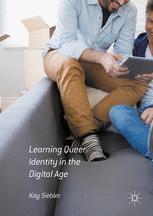

Most ebook files are in PDF format, so you can easily read them using various software such as Foxit Reader or directly on the Google Chrome browser.
Some ebook files are released by publishers in other formats such as .awz, .mobi, .epub, .fb2, etc. You may need to install specific software to read these formats on mobile/PC, such as Calibre.
Please read the tutorial at this link: https://ebookbell.com/faq
We offer FREE conversion to the popular formats you request; however, this may take some time. Therefore, right after payment, please email us, and we will try to provide the service as quickly as possible.
For some exceptional file formats or broken links (if any), please refrain from opening any disputes. Instead, email us first, and we will try to assist within a maximum of 6 hours.
EbookBell Team

0.0
0 reviewsThis book explores, through specific analysis of media representations, personal interviews, and historical research, how the digital environment perpetuates harmful and limiting stereotypes of queerness. Siebler argues that heteronormativity has co-opted queer representations, largely in order to sell goods, surgeries, and lifestyles, reinforcing instead of disrupting the masculine and feminine heterosexual binaries through capitalist consumption. Learning Queer Identity in the Digital Age focuses on different identity populations (gay, lesbian, transgender) and examines the theories (queer, feminist, and media theories) in conjunction with contemporary representations of each identity group. In the twenty-first century, social media, dating sites, social activist sites, and videos/films, are primary educators of social identity. For gay, lesbian, bisexual, transgendered, and transsexual peoples, these digital interactions help shape queer identities and communities.